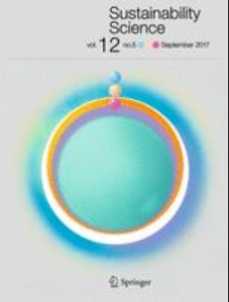
By
Abstract
Understanding how ecological distribution conflicts (EDCs) have changed through the transition from socialism to capitalism in the European semi-periphery can provide valuable lessons for global efforts towards sustainability. This article traces the social, political and economic origins of EDCs, and evaluates the outcomes of the 74 most illustrative cases of such conflicts from five ex-Yugoslav countries reported in the Environmental Justice Atlas (EJatlas): Bosnia and Herzegovina, Croatia, Macedonia, Montenegro, and Serbia. It analyses how the occurrence and characteristics of the conflicts changed through three distinct phases in the region’s history, i.e., the periods of Socialism (1945–1990), Transition (1991–2003), and EU-accession (2004–present), each characterised by different socio-metabolic, political and institutional profiles. The article also evaluates the level of environmental justice (EJ) in the region. The greatest diversity of conflicts were identified in the last phase, a period characterised by an increase in material and energy flows through a number of controversial projects, many of which arose as a result of ‘modernisation’. Fortunately, the resulting ‘unsustainabilities’ were immediately politicised by EJ movements, whose composition, demands and success differed in line with changing dominant political and institutional conditions. Currently, the EJ movements in ex-Yugoslavia are led by national NGOs, while urban movements embrace the broadest spectrum of socio-environmental issues. Timely mobilisation and support from local authorities have been crucial for the successful resolution of conflicts. However, EJ movements have proved impotent to resist projects deemed to be of national economic interest in contexts characterised by high levels of corruption and low political accountability. Stronger alliances among different movements would assure more EJ and lasting sustainability solutions in the region.
Link
https://link.springer.com/article/10.1007/s11625-017-0505-6
email hidden; JavaScript is required
Keywords
Ex-Yugoslavia, Post-socialism, Semi-periphery, Social metabolism, Ecological distribution conflicts, Environmental Justice Atlas
How to Cite
Špirić, J. Sustain Sci (2017). https://doi.org/10.1007/s11625-017-0505-6

The project ENVJUSTICE has received funding from the European Research Council (ERC) under the European Union’s Horizon 2020 research and innovation programme (grant agreement No. 695446)